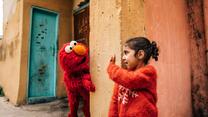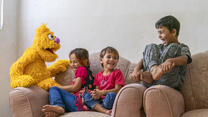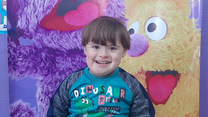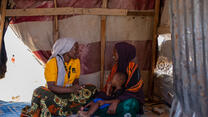WHO WE ARE
The mission of the International Rescue Committee (IRC) is to help people whose lives and livelihoods are shattered by conflict and disaster to survive, recover and gain control of their future. The IRC’s vision is to lead the humanitarian field by implementing high-impact, cost-effective programs for people affected by crisis, and shape global policy and practice by sharing our learning and experience with others.
All IRC programs are designed to achieve meaningful change in people’s health, safety, education, economic wellbeing and ability to influence the decisions that affect their lives. Our Education programs seek not only to improve learning, but also to achieve overall well-being. We believe that education during crisis and conflict is a necessity, not a luxury. Throughout our 84-year history, education programs have been an essential part of the IRC’s response in working with people affected by conflict.
The IRC’s integrated network of support for early childhood programming ensures that babies and young children are receiving appropriate health and nutrition, cared for by nurturing and consistent caregivers in a safe and supportive environment, developing essential cognitive and social and emotional skills, and engaging in play and early learning experiences.
- Social and emotional skills, sometimes called life skills or emotional intelligence, help a person build resilience, understand and manage emotions, control their impulses and persevere, solve problems, set and achieve goals, feel and show empathy for others, and establish and maintain positive relationships.
For young children, important social and emotional skills include secure attachment to primary caregivers, positive relationships with family members, teachers and peers, and the ability to concentrate, play cooperatively with other children, understand and follow simple rules, and identify and manage their feelings.
WHY OUR WORK MATTERS
Globally, over 200 million children have been identified as at risk for failing to reach their developmental potential due to malnutrition, poverty and lack of adequate early learning opportunities.
Research shows that early childhood programming is one of the smartest investments countries can make. Surviving the first years of life and ensuring that young children have the opportunity to thrive is essential for the ability to learn and develop. The cognitive and social-emotional skills children rapidly develop during their earliest years underpin their success in school and work and influence their long-term health and well-being.
In the countries where the IRC operates, children are exposed to a variety of colliding risk factors: poverty, neglect, violence, disease, malnutrition, maternal depression and lack of stimulation. Research shows that this adversity has immediate and long-term effects on critical brain development, but that we can mitigate the effects by building the resilience of children and caregivers. Without intervention, children can face cognitive, physical and social-emotional disabilities that not only impede how they learn, grow and interact with others, but can also impact the well-being of future generations.
WHAT WE DO
IRC practitioners provide technical assistance to more than 30 country programs. Technical advisors are charged with staying abreast of the best available research and practices in their respective fields and sharing these with the IRC’s frontline teams. They also lead advocacy strategies to encourage partners and policy makers to adopt the interventions proven to be effective based on our research and experience.
Holistic health and well-being
The IRC approaches the early years with holistic care in health, education and support to parents and caregivers. Our programs work to supplement health and nutrition services with support for child development through encouraging improved parent-child interaction and early learning. In order to achieve this, an integrated set of interventions, beginning before pregnancy and extending through early childhood, include: reproductive health, maternal and child health, nutrition, and parental and family support.
In collaboration with health staff from the Ministry of Health in Burundi, the IRC provided training and support to health and nutrition workers to integrate play and communication activities into caregiving practices for children suffering from malnutrition and disease. Trainings equipped healthcare workers with skills to encourage parents and caregivers to engage in play and early learning activities.
Preparing children for school
- The IRC’s Preschool Healing Classrooms: Built on 30 years of education in emergencies experience and a decade of research and field testing, the IRC’s Preschool Healing Classrooms offer children a safe, predicable place to learn and cope with the consequences of conflict.
The IRC’s Healing Classrooms approach is tailored for preschools to provide content focused on the psycho-social needs of young children to learn the skills needed to enter school. Children learn basic literacy and numeracy skills, to express their needs, play cooperatively, follow rules and manage their feelings. These skills are developed through consistent, nurturing interactions with adult caregivers that provide children with a sense of comfort, security and confidence.
In Lebanon, more than half of the 1.1 million registered refugees from Syria are under the age of 18 and nearly 17% are under five. To prepare them for the Lebanese school system, the IRC is providing early childhood education to children living in tented settlements in northern Lebanon. The classes help young children who have witnessed war and displacement overcome adversity and gain social and emotional skills to build their resilience. Classes are held in supportive, safe spaces where they learn how to read and write in a playful environment.
Families make the difference
Recognizing that families are the most important and immediate layer of supporting children’s well-being and development, the IRC has been creating evidence-based parenting programs for children in crises since 2009. Research shows that attachment to caregivers during infancy influences the health of an individual throughout their lifetime. The IRC’s Families Make the Difference programs strengthen the capacities of caregivers to reduce violence in the lives of children and support their healthy development by introducing techniques parents can use to communicate and problem solve effectively with their children. The IRC runs parenting programs for caregivers of young children in Ethiopia, Burundi, Iraq, Jordan, Lebanon, Liberia, Syria and Tanzania.
Preliminary findings from parents participating in Families Make the Difference parenting programs in the countries surrounding Syria indicate a 55% increase in the use of positive coping strategies and a significant decrease in violent discipline.



